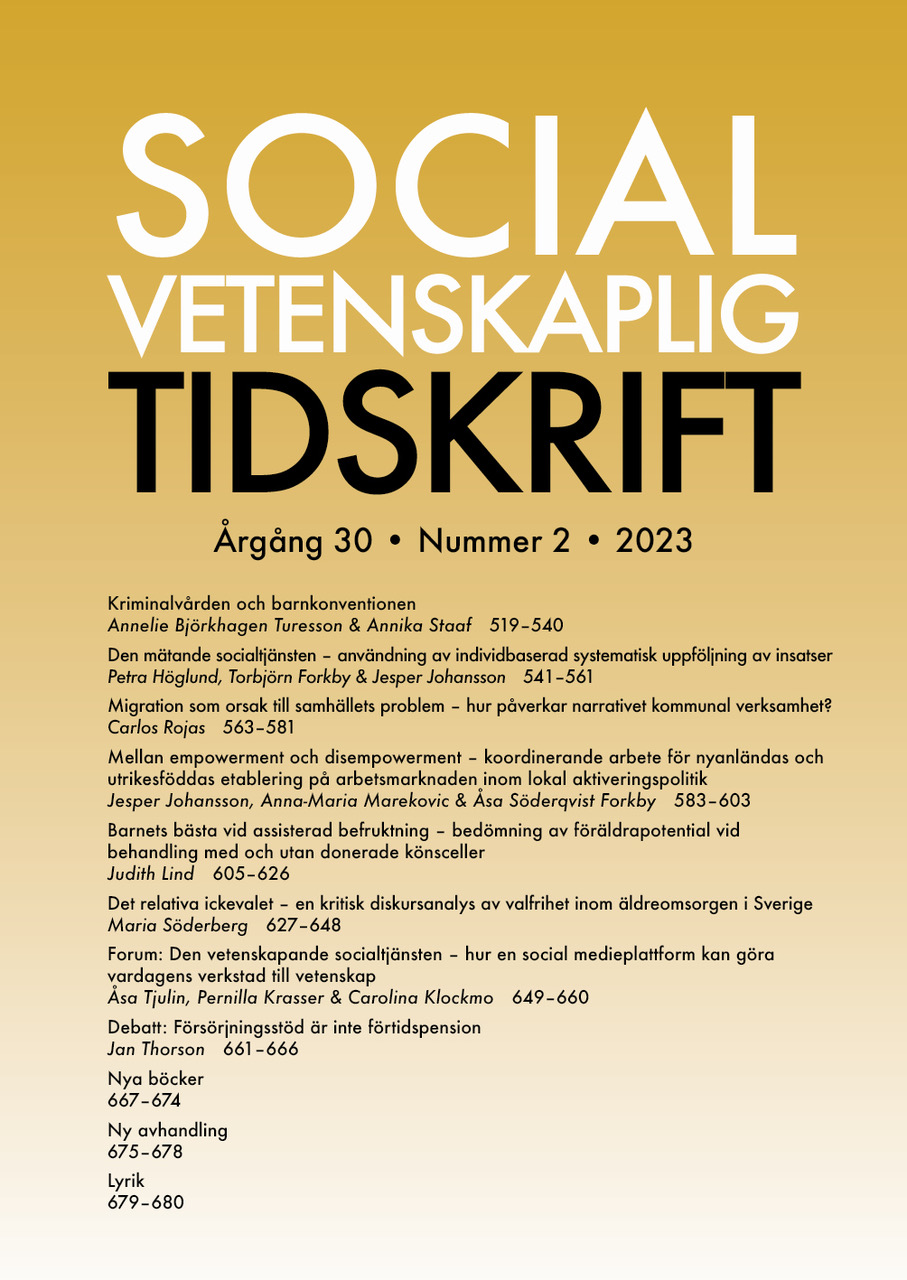Migration as cause of social problems
How does the narrative impact local government practices?
DOI:
https://doi.org/10.3384/SVT.2023.30.2.4305Keywords:
causal argumentation, decision making, narratives, migration, racialization, racial structures, local administrationAbstract
Even though Sweden have well over half a century’s experience with migration, recently strengthened master narratives of migration and migrants as social problems are generating impact on policy making and interventions on the local level. Previous research has identified how narratives of migration and migrants impact on policy making and interventions related to migration, integration and accommodation of migrants. This study widens the scope as it identifies how narratives of migration and migrants impact on policy and interventions in general. Interviews with local government administrators and police officers from a district in Stockholm reveal how this occurs when narratives of migration and migrants are embedded in the causal argumentation of present problems in the district.
When practically any problem is argued to have migration as root cause, policy and interventions for solving them tend to target migrants. This risks the quality and efficiency of policy and interventions, when the causality behind the problem is simplified and inaccurate. Another risk is that the local government contributes to a feedback loop as this strengthens the master narrative of migration and migrants as cause of society’s problems. Targeting migrants when addressing the districts problems also risk omitting natives impacted by these from benefiting from the solution or relief provided by the local government.
Given the results, it is furthermore interesting to reason on the existence of a racializing bureaucracy: a bureaucracy that is not only racialized in its structure, but also actively contributing to the reproduction and development of racialized structures in society at large.
Downloads
Published
How to Cite
Issue
Section
License
Copyright (c) 2023 Carlos Rojas

This work is licensed under a Creative Commons Attribution 4.0 International License.
Allt material i Socialvetenskaplig tidskrift publiceras sedan 2022 (Vol 28 Nr 2) med omedelbar öppen tillgång (open access), under Creative Commons-licensen CC BY 4.0. Upphovsrätten till innehållet tillhör respektive författare.
Allt innehåll i tidskriften är fritt tillgängligt utan kostnad och får fritt läsas, laddas ned, kopieras, delas, skrivas ut och länkas. När innehållet används måste författare, källa och licens anges. Författaren kan fritt göra sin publicerade text tillgänglig på institutionella och internetbaserade arkiv, exempelvis sitt lärosätes digitala arkiv eller andra tjänster för detta.
Inga publiceringsavgifter tas ut vid publicering i Socialvetenskaplig tidskrift.


